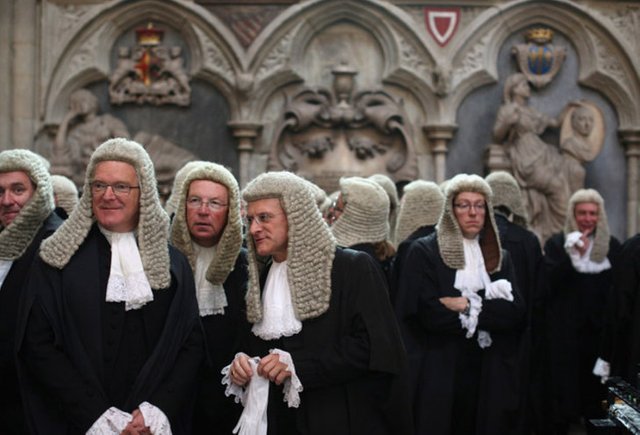The Unexpected reason why wigs were so common during the 1700s and 1800s among European men...
Have you ever wondered why powdered wigs, otherwise called “periwigs” were so common during the 1700s and 1800s, especially among the Europeans? – Well, I did for a long time. Whenever I came across a movie or a painting from that era, I always noticed men wearing them. At first, I didn’t give it much thought, but, then, at a point, it started to trigger my curiosity: why did they do it after all? – I started to search for the answer and found some really, really interesting information that I never saw coming; and today I’m going to share with you that information.
Here’s what I learnt:
The journey of the powdered wigs actually started as a embarrassing necessity, and ended up as a symbol of high status! – sounds confusing? – let me explain then.
Some of you might know that around the 16th century, the Cupid's disease, AKA, STD had become one of the biggest and worst epidemics that ever came upon the Europe. Without the availability of antibiotics, the victims of the disease felt it in its totality: rashes, open sores, dementia, blindness, and hair loss.
Now, before I proceed to the next part, I should inform you that back then, hair was a symbol of status. So, not having them would have been harmful for one’s reputation. Thus, it was sort of a big deal, which had lead to a rush in wig producing. The ones who were the sufferers of syphilis, along with their baldness, hid the bloody sores wearing wigs constructed of animal or, in some cases, human hair.

source
Sometimes the wigs were coated with perfumed powder to keep aromas hidden. So, as you can see, it was a shameful necessity in the beginning. However, the scenario changed in 1655, when Louis XIV, the king of France began to lose his hair (although, his father Louis XIII also used to wear wigs, but it was Louis XIV who turned it into a luxurious fashion trend). The king became concerned about his reputations and therefore he employed expert wig-makers to for saving his image. After some years, Louis XIV’s cousin and the king of England Charles the Second followed his footsteps when his hair began to go grey.
Like today’s celebrities, the general people thought of their lords and ladies of high-status as ‘fashion icons’ – thus, the inevitable happened and the wigs, which was once a symbol of shame, became a symbol of status! The fashion of wigs dribbled down from higher class to the upper-middle class, and as a result, Europe’s newest craze of that era came into existence and ruled for nearly 200 years!
The ending:
In the late 18th century the craze started to die down. During the revolution, the French people booted it out. As for the Englishmen, in 1795, a tax was imposed on the hair-powder by then-Prime minister of Britain William Pitt, and thus, the wigs started losing popularity. Short-sized, natural hair became the new trend, which is still popular today.
So, that was it about wigs in the 17-1800s. If you find my article informative and entertaining, please let me know through Upvotes and Comments. For more contents about History, Art, Nature, Mystery and more, Follow Me here : @tamurah
Keep Living......Keep Loving........Keep Steeming......
Have a nice day
info sources: Wikipedia, Medium.com, Mentalfloss.com

Awesome info. Thanks @tamurah!
Wigs at that time were so weird, I don’t even know what to think about them. But if they felt it fashionable then good for them, I think it’s because there’s a huge generational gap between right now and back then 😂.